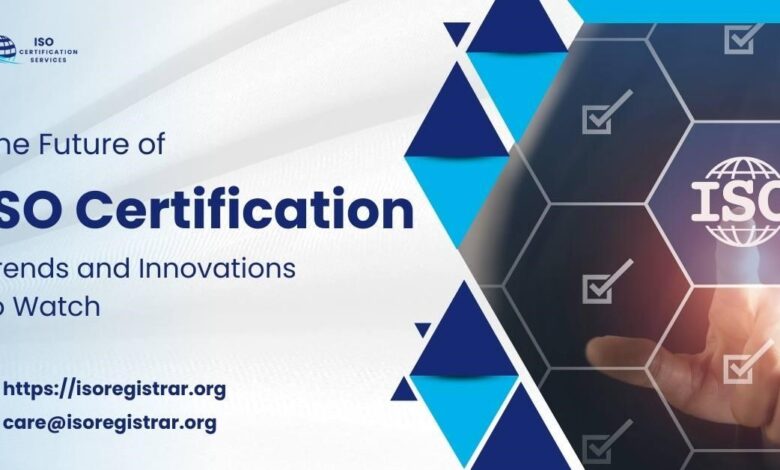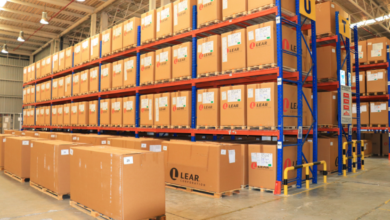The Future of ISO Certification: Trends and Innovations to Watch

ISO certification has long been a gold standard for organizations striving for excellence in quality management, environmental sustainability, information security, and more. However, as the business environment becomes more complex and technology-driven, the future of ISO certification will evolve in several ways. Here are the trends and innovations that are shaping the future of ISO certification:
1. Digital Transformation and Automation
One of the most significant changes in the ISO certification landscape is the shift towards digital transformation. Organizations are increasingly leveraging advanced technologies such as artificial intelligence (AI), machine learning, and the Internet of Things (IoT) to streamline their processes and improve efficiency. Digital tools can automate routine tasks involved in certification, such as data collection, monitoring, and reporting, reducing human error and increasing accuracy. This not only simplifies the certification process but also allows for real-time monitoring and continuous improvement.
2. Integration of AI and Big Data
AI and big data analytics are transforming how organizations approach ISO certification. By analyzing large volumes of data, AI can identify patterns and insights that were previously inaccessible. For example, predictive analytics can help organizations anticipate and mitigate risks before they become significant issues, ensuring compliance with ISO standards. AI-driven audits can also enhance the accuracy and thoroughness of assessments, providing deeper insights into organizational performance and areas for improvement.
3. Enhanced Focus on Sustainability
Sustainability is becoming a core focus of ISO standards, reflecting the global push towards more environmentally responsible business practices. ISO 14001 for environmental management and ISO 50001 for energy management are gaining traction as organizations seek to reduce their carbon footprint and enhance resource efficiency. The future of ISO certification will likely see the development of new standards and updates to existing ones to address emerging sustainability challenges, such as circular economy principles and climate resilience.
4. Cybersecurity and Information Security
With the rise of digital transformation comes the increased risk of cyber threats. ISO/IEC 27001 for information security management is more critical than ever as organizations need robust frameworks to protect their data and systems from cyberattacks. The future of ISO certification will place a stronger emphasis on cybersecurity, with more stringent requirements and enhanced guidelines to address the evolving threat landscape. Organizations will need to invest in advanced security technologies and practices to achieve and maintain certification.
5. Remote Auditing and Virtual Assessments
The COVID-19 pandemic has accelerated the adoption of remote working and virtual processes, including remote auditing and virtual assessments for ISO certification. This trend is likely to continue, offering greater flexibility and accessibility for organizations. Remote auditing tools and techniques, supported by digital collaboration platforms, enable auditors to conduct thorough assessments without the need for physical presence. This not only reduces costs but also minimizes disruption to business operations.
6. Continuous Improvement and Agile Methodologies
The traditional periodic audits and recertification model is evolving towards a more continuous improvement approach. Agile methodologies, which emphasize iterative progress and responsiveness to change, are being integrated into ISO certification processes. This allows organizations to make ongoing improvements and quickly adapt to new requirements or market conditions. Continuous monitoring and real-time feedback loops ensure that organizations can maintain high standards and proactively address any issues.
7. Industry-specific standards and Customization
As industries become more specialized, there is a growing need for ISO standards that address specific sector requirements. Customized ISO standards are being developed to meet the unique needs of various industries, such as aerospace, healthcare, and automotive. These tailored standards ensure that certification is relevant and adds tangible value to organizations operating in niche markets.
8. Global Harmonization and Mutual Recognition
The future of ISO certification also involves greater global harmonization and mutual recognition of standards. As businesses operate in increasingly interconnected markets, there is a need for consistent standards that are recognized across borders. Efforts to harmonize ISO standards globally can facilitate international trade and reduce the duplication of certification efforts.
Read also: ISO 29990:2010 – Education and Training Management
Conclusion:
The future of ISO certification is marked by innovation and adaptation to new technological and environmental challenges. As organizations navigate an increasingly complex and dynamic business landscape, embracing these trends and innovations will be essential to maintaining compliance and achieving excellence. By leveraging digital transformation, AI, and big data, focusing on sustainability and cybersecurity, adopting remote auditing practices, fostering a culture of continuous improvement, and recognizing industry-specific standards, organizations can stay ahead of the curve and ensure that their ISO certification remains a valuable asset. As these trends continue to unfold, the role of ISO certification will not only be to uphold standards but also to drive innovation and resilience in the face of future challenges.






